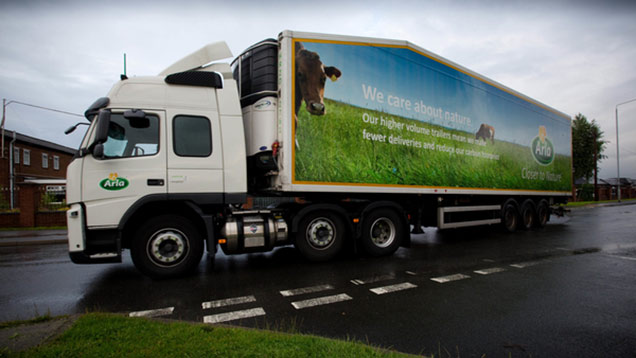Arla still hopes for early 2016 dairy turnaround
 ©Tim Scrivener
©Tim Scrivener Dairy markets should start improving in the first half of 2016, according to the UK’s biggest milk buyer.
Co-op Arla has reported lower revenues and profits, as well as the worst performance price – the value returned for each kilo of an owner’s milk – for six years.
The firm’s half-year statement said global commodity markets had fallen as expected, but prices had hit an “unforeseen low”.
See also: Arla freezes farmer milk price for September
Arla Foods chief executive Peder Tuborgh said the dairy sector had rarely been as unpredictable, but he was focused on his business’ strategy.
“Our long-term view is that the market will turn again in the first half of the year,” he said.
Arla’s revenues dropped 3.8% to €5.13bn (£3.8bn) in the first six months of this year.
Profits fell 21% to €116m (£85m) and the performance price reached 33.8c/kg of milk (25p/litre) – compared with 41.7c/kg (31p/litre) in 2014.
The 13,500-member co-op is trying to ride out the current crisis by cutting costs, pushing milk into brands and retail customers and growing outside the EU.
It claims to be on course to meet its €330m (£242m) cost-saving goals by the end of 2015, set against 2012 levels.
Sales of top brands Lurpak, Castello and Arla have also risen 2.4% in the first half of 2015.
Arla said it remains committed to its “volume agenda”, despite the challenges of high supply depressing dairy prices.
It expects to move an extra 500m kilogrammes of milk this year and a similar amount the year after.
In the UK, the co-op announced last month it was freezing the price paid to its 3,000 British members for September at 23.01p/litre.
Recent retail commitments from Aldi, Asda, Lidl and Morrisons would have given Arla a significant cash injection. In August the co-op also launched a new farmer-owned marque for its products
Arla Foods chairman Ake Hantoft said farmers’ current milk price did not cover cost of production, which was a heavy challenge for their businesses.
“In the past year Arla has been working very actively to buffer the market situation without damaging our market positions,” he said.
“This proves that we have the right strategy, but no strategy can remove the current world market slump.”
